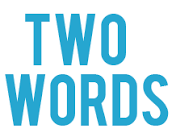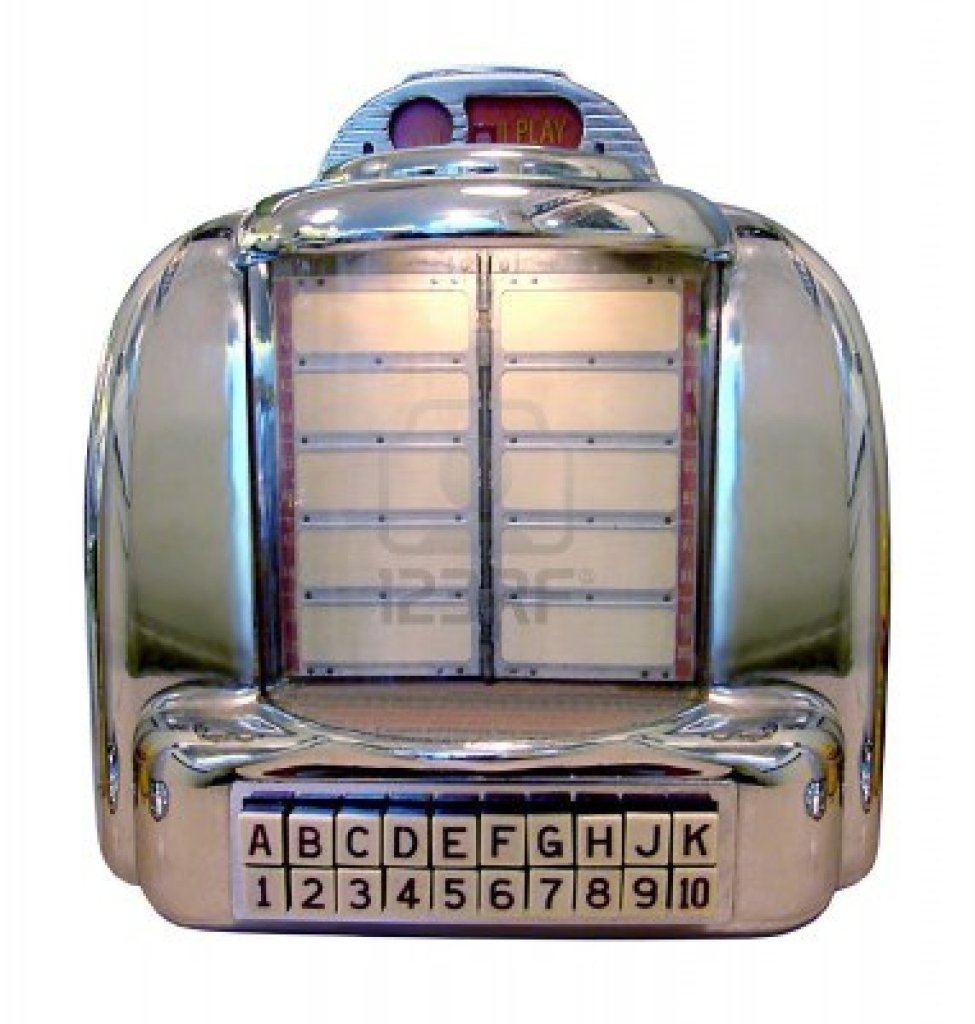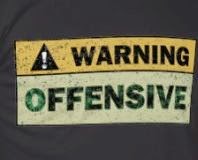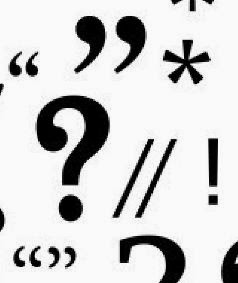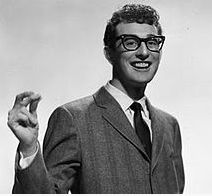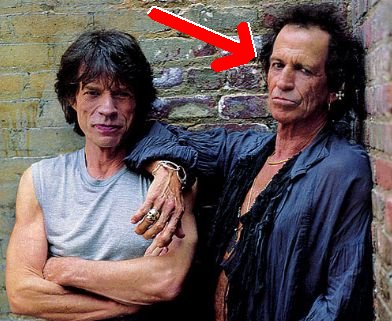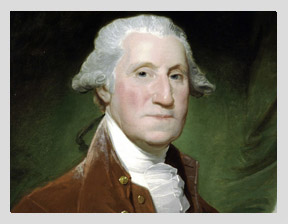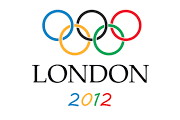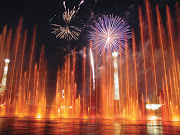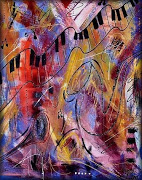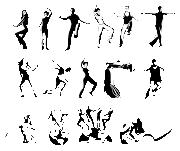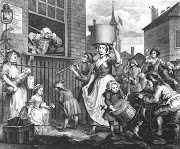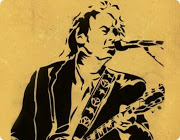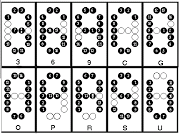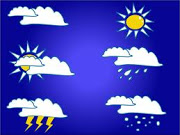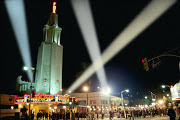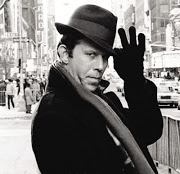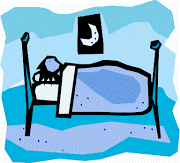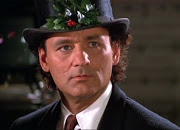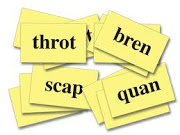Robbie Robertson: Somewhere Down The Crazy River
[purchase]
Writing for three different music blogs often results in crossover posts. I wrote about The Jam here recently, and have just submitted a piece about another Jam song to Cover Me. And I recently wrote about The Last Waltz at Another Old Guy, so I guess that I have Robbie Robertson on my mind.
Strangely, though, this song popped into my head, despite the fact that its title doesn’t have the key word in it, and would seem more appropriate for a Boat theme. And yet, it works. It took Robertson 11 years before he released his first, self-titled, solo album in 1987, and tried to stretch beyond the Americana sounds that he played for so many years with The Band. The album was produced by Daniel Lanois, who was also working with U2 and Peter Gabriel at the same time, and all of the members of U2, as well as Gabriel and members of his band all appear on the album. Lanois’ typically dreamy, atmospheric sound pervades the album.
“Somewhere Down the Crazy River” is an odd song.
Robertson only sang lead on two Band songs, and Levon Helm has claimed that Robertson’s mic was off during the Last Waltz
concert (and the Internet rumor mill has his mic off during most Band
shows), so it is not Robertson’s singing that he will be remembered for.
According to Lanois, he secretly recorded Robertson telling a story about hanging out with Levon Helm in Arkansas, fishing with dynamite on hot nights. Because that’s apparently what one does. Meanwhile, Robertson was fiddling with a Suzuki Omnichord, which Lanois also recorded, and he superimposed the storytelling over that, creating the basic tracks for the song. In between the spoken word parts, which have a sort of Tom Waits feel, Robertson sings, perfectly well, I might add:
Catch the blue train
To places never been before
Look for me
Somewhere down the crazy river
Somewhere down the crazy river
Catch the blue train
All the way to Kokomo
You can find me
Somewhere down the crazy river
Somewhere down the crazy river
In each case, the second “Somewhere Down the Crazy River,” is sung, somewhat distorted, by Sam Llanas of The BoDeans. Also featured on the track are fine bass playing and drumming by Tony Levin and Manu Katché, both of Gabriel’s band (among other things). And Bono is somewhere in the mix, too.
It is curiously compelling, which is a tribute to the combination of Robertson’s charismatic, deep voice, his storytelling ability, Lanois’ production and the talent of the musicians. And despite its unconventional sound, it was released as the album’s first single, and was successful.
The video for the song (above), was directed, like The Last Waltz, by Martin Scorsese, whose infatuation with Robertson’s face was still in force. Robertson’s lust interest is played by Maria McKee, at the time the lead singer of the pioneering “cow-punk” band Lone Justice, who were a mid-80s “next big thing” that never happened. Which in itself was sad, since McKee’s voice is incredible (and her solo career never went anywhere, either). She sings on a different song on the album, and one can only assume that she was chosen to be in the video for her looks. When asked about her “acting skills,” McKee was quoted as saying: "... what did I do, I was just being licked by Robbie..."
Thursday, November 2, 2017
Train: Somewhere Down The Crazy River
Posted by J. David at 8:30 AM View Comments Links to this post
Labels: Bono, Daniel Lanois, Levon Helm, Lone Justice, Maria McKee, Peter Gabriel, Robbie Robertson, The Band, The BoDeans, The Jam, Train, U2
Wednesday, November 1, 2017
Train:Locomotive Breath
purchase [Locomotive Breath]
I confess that I was old enough to be in the demographic of those who purchased the Monkees <Last Train ...>. No excuses: that (and many others like Aretha and the Temptations and the Box Tops) was how I got into "pop". But I wasn't writing @ SMM back in 2009 when a variation of the train theme came around once afore. There were posts galore - like pages and pages of posts!
But even back then, despite their best efforts, the SMM team couldn't exhaust the <train> theme.
Before I get to Aqualung's Locomotive Breath, it's worth pointing out that the chug-chugging locomotive motion is a staple of rock, not far removed from the "twist", that arm & leg flailing dance style that generated such fear about lost generations gyrating to evil music. It must not have been lost on Ian Anderson when he and his wife penned Locomotive Breath.
(Let's not go deeper into the Spanish etymology behind "loco")
One reviewer pointed out that there are few songs that truly capture the energy of the train: the massive engine that pulls heavy metal wagon after wagon over hill and dale (and the men that feed the beast inside a la John Henry) Louis Jordan's Choo Choo Ch'Boogie is a great song and it gets us part way there towards the train experience but it lacks the weight/heavy that Jethro Tull brings to bear.
Locomotive Breath takes it a step further. In reality, there's always Ian Anderson's style: nearly breathless chugging that emulates the true choo-choo of the locomotive the song names.
Aqualung itself is a fine album in may ways. It was the album that made Jethro Tull big, and Locomotive Breath was one of the charting hits. That's not to say that their albums Stand Up and Benefit weren't pretty good, but it was Aqualung that turned the corner for them.
There is a snippet of an interview with Ian Anderson at SongFacts' page for the song and a link to the full interview which you might read if you want to go deeper.
Whatever Anderson's original intentions for the album, and however the band finally recorded the song, the train effect is ... effective. The flute as a vehicle and in particular, Anderson's breathy flute style is well-suited to the locomotive metaphor.
Posted by KKafa at 1:27 PM View Comments Links to this post
Labels: Ian Anderson, Jethro Tull, Train, Trains
Sunday, October 29, 2017
Train: God’s 9:05
J Shogren: God’s 9:05
[purchase]
Our new theme may be deliberately ambiguous, but it gives me the perfect excuse to share a favorite train song. We have a rule here at Star Maker Machine that a song must be at least five years old. It must have stood the test of time, and shown staying power. So I could not share this one last time we looked at trains, because it was too new at the time. That is no longer the case, so here it is. J Shogren has one of the most wonderfully sly senses of humor of any songwriter I know. Here, he imagines that we all board a train to the afterlife when we die. We hand in our tickets, most of us, and the train is either an elevated train or a subway, with us having no choice in the matter, usually. But Shogren imagines such a train being boarded by two characters from legend, John Henry and Casey Jones. Such men would never be content to simply wait and see where such an important train would take them. Their training, you might say, would give them more options than that. So it’s a stretch, I admit, but there is another way the song could be said to fit our new theme.
J Shogren is an artist I discovered for my old music blog, Oliver di Place, and I am happy to say he has become a friend since. He has one of the most extraordinary bios of anyone, musician or not, that I know of, and I encourage you all to seek out that information. You may ask when you see it if it is just an elaborate tall tale, but I researched it, and it is all true. I will leave the details for you to discover, in hopes that you will also find more of his music.
Posted by Darius at 3:22 AM View Comments Links to this post
Labels: Casey Jones, J Shogren, John Henry, Train
Saturday, October 28, 2017
Listen: Hear Me Lord
purchase [Silver Linings]
Time's just about up for the <listen> theme and I confess I haven't found the time to go as deep as I had hoped for this one and I still have to put up the next theme. I could have left it for our traditional <leftovers> theme after Thanksgiving, but .. no. So, I'll take a page from the early days of SMM when many posts weren't much more than: "Here's one for you."
There are famous quotes that say "you hear but you do not listen."
There are others that say "You listen but you do not hear."
Is this any different from the dichotomy between seeing and looking?
I guess it is fair to include a song that includes "hear" but not the listen of the current theme.
Heck ... any song that includes Bonnie Raitt is OK any time.
This one sounds a bit like Paul Simon from Graceland.
Hear Me Lord from Raitt's 2002 album Silver Linings was written by Oliver Mtukudzi of Zimbabwe and you could do worse than to head off down that path for a listen or two.
Posted by KKafa at 2:04 PM View Comments Links to this post
Labels: Bonnie Raitt, Hear, Listen, Oliver Mtukudzi
Wednesday, October 25, 2017
Listen: Stop, Look and Listen/Jeff Beck
purchase [ Blow By Blow]
It may have been Beck-Ola that turned me on to Jeff Beck but I can't really single out a particular piece from the album that has stuck with me. On the other hand, my copy of the 1975 Blow By Blow 33RPM album probably had worn out grooves from being played so much. It's no longer in my possession to check.
<Stop Look and Listen> from the "Flash" album almost a decade after Blow By Blow wouldn't be in my list of Jeff Beck favorites. The song just happens to fit our theme and Beck hasn't had much written about him here.
I actually saw him in concert ... must have been about '72, in Philly.
Listening to Beck again after a few years, I am struck by how eclectic he is: there are elements of all sorts of musical styles.
Beck has paid his dues: one of the Yardbirds, almost one of Led Zeppelin, known by all in the field, played with ... you name him/her.
ConsequenceOfSound has a raw review of his latest =- after a 6 year absence. You might enjoy checking it out. I did.
The album from whence Stop, Look and Listen comes (Flash, from 1985) is noted as a time when Rod Stewart re-united with the Jeff Beck group. (Come again? Rod Stewart and the Jeff Beck Group? Guess I didn't know that!) The <Flash> album itself has various other curiosities on it: covers of "Wild Thing" and "People Get Ready" Beck himself [apparently] didn't particularly care for the album, but it did pretty well on the charts.
But maybe my favorite Beck:
Posted by KKafa at 12:01 PM View Comments Links to this post
Tuesday, October 24, 2017
Listen: Are You Out There
Dar Williams: Are You Out There
[purchase]
Dar Williams is about 6 years younger than me, and grew up about 12 miles as the crow flies from me (or about 25 miles driving, on a route that takes you virtually past where I am writing this). Which is a long way of saying that we both lived in the New York area, at roughly the same time. Meaning that we had pretty much the same choices of radio stations to listen to, growing up.
I’ve written ad nauseam about how I became a music fan, and how important for me it was to listen to the radio as a teenager—mostly WNEW-FM—until I headed off to college and WPRB. That was how you learned about music then, for the most part, and where the DJs were people like you who really cared about the minutiae, about the trivia, about the connections, about good segues, about the music. And also, in those days, the DJs, and musicians, were not reticent about talking about politics and other issues, because the radio stations weren’t run and programmed by some conglomerate devoted to creating a uniform, sellable product that sounded the same wherever you happened to be.
So, when I heard this Dar Williams song, about the importance that listening to the radio had to her, it clearly resonated with me. In preparing to write this piece, I found a bunch of live videos of Dar performing this song, often with her introductions included. She sometimes talks generally about the power of radio to introduce listeners to music, and always mentions that the song was inspired by her listening, in her teenage years, to WBAI, a radical, left wing station probably best known for having played George Carlin’s Filthy Words routine in 1973, which resulted in an iconic Supreme Court case that defined the government’s ability to regulate obscene and indecent material on the airwaves. Williams talks about how the station’s discussion of all sorts of conspiracy theories made her think, and the music opened her mind. In addition, there are references in the song to WRSI, 93.9 “The River,” a station in Northampton, Massachusetts, where she was living when she wrote the song (and which is also, I must add, the home of Smith College, the alma mater of my wife and daughter, where I was last week to attend the groundbreaking for the school’s library renovation).
For me, WBAI was something that I respected, but never listened to—too much talking, not enough music for me, but the song is really universal, at least for those of us who grew up obsessed with radio (and are still obsessed). I’ve long been a fan of Williams as both a songwriter and singer—she was probably one of the first artists that WFUV got me hooked on, her appearance at the Clearwater Festival in the 90s was the main lure for my family to attend our first one, and her song, “When I Was A Boy,” was a family favorite, reminding us of our daughter as a child, around the time the song was released.
Dar, and Lucy Kaplansky and Richard Shindell, joined together in Cry, Cry, Cry a few years back, but after one album and some touring, they went their separate ways, for the most part, reuniting last summer at Clearwater for a fun, if sloppy and under rehearsed set. They are back now on the road for a mini-tour, which will be stopping in Tarrytown this weekend, and my wife and I will be there, despite having to fight our way through the Halloween parade and block party right by the Music Hall.
Posted by J. David at 8:30 AM View Comments Links to this post
Labels: Cry Cry Cry, Dar Williams, Listen, Lucy Kaplansky, Richard Shindell
Listen: Listen to the Lion
Purchase Van Morrison's "Listen to the Lion" or from the masterful St. Dominic's Preview
Van Morrison's "Listen to the Lion" is an 11 minute epic, a magisterial hymn. Orchestral, blooming with strings, a shower of cymbal and piano trills and delicately teetering guitars that flash like lightning over the seesaw vocal line, where words and utterances of grunts, guttural inflections and non-verbal cadences and tones--so much more than "ohs" and "ahs"--sound equally poetic.
No one but Van Morrison could deliver a song like "Listen to the Lion." For all that I said above, hallmarks of Van's music from the 60s and 70s, plus the poetic vibe of a transcendental troubadour delivering soulful, heartfelt reflections on one's place in the mystic lacework of the universe, there is something special, yet utterly intangible, about his music.
"Listen to the Lion" shouldn't really work--it has none of the snap jazz kick of say "Moon Dance" or the dirty swagger of Them's "Gloria" or "Here Comes the Night". But, like much of what he did on that incredible string of 1968's Astral Weeks to 1973's Hard Nose the Highway, the music doesn't so much defy as transcend classification. There's pop, soul, jazz, folk--a veritable jukebox of genre and sounds. (Van Morrison was--is--if nothing else, a master of soul.) Yet, to me, there was always something indefinable in Van Morrison's music. How did he create such off-center harmonies, singing with a vocal delivery like the rise and fall of a mad hatter on the run?
Van Morrison's music, from a certain period, is like the amalgamation of everything good about music, perhaps what God would have envisioned when He invented the idea of music. Everything is there: a fleet of musicians playing an array of instruments that only rarely make it on to a rock record. The vocalizations are incantation, repetitive like a grand soul singer, and he always manages to cast a spell with that stuttered, off-track floating delivery. He rises from despair to joyousness, carrying emotion on a wing in the air, and while a phenomenal writer, he needs little more than a few repeated phrases to create a poetic image rich in tone and as colorful as a painted masterpiece. The brilliance in "Listen to the Lion" is in it's breathlessness. A hushed masterpiece; an epic ballad of an imagined diaspora, a payer to a higher being, calling the soul to a journey that has no true destination. An evocation of something spiritual and beautiful that is unnamable. An invocation of the animal soul inside us, growling to be released.
"Listen to the Lion" is visceral, beautiful, a prayer sung rather than spoken. Proof of a thesis I didn't know even existed: That vocals are far more important than words.
Posted by Andy "La Ray Gun" LaRaia at 12:34 AM View Comments Links to this post
Labels: Listen, Listen to the Lion, van morrison
Thursday, October 19, 2017
LISTEN: TO THE MUSIC/DOOBIE BROTHERS
This has to be one of the most magical bits of riffing in music, I sooooo love this simple sounding casual wrist action, as patented by the Doobie's Tom Johnston, singer and guitarist, of many, in the early incarnation of the band, as well as the writer of this song. It was clearly a sound he enjoyed, as it reprises often in other songs, notably the big early other song they are famous for. And, does it remind you of anything? Let me give you a clue, here's Nile Rogers explaining his style. But that doesn't matter, so glorious a sound it is, in any hands.
But it isn't just the guitar, it is the subtle appearances of what sounds like some mandolin after the first chorus, the banjo slowly leaking through during and after the second, and all the flanging/phasing effects so beloved of the time. (God, I miss flanging. Or is it phasing......) Did I say it had two drummers? Surely the first two drummers on a big hit single in history. Or my memory It is the sound of joy on a plate.
Over to Johnston, who later explained his inspiration, in a never more 70s way:
"The chord structure of it made me think of something positive, so the lyrics that came out of that were based on this utopian idea that if the leaders of the world got together on some grassy hill somewhere and either smoked enough dope or just sat down and just listened to the music and forgot about all this other bullshit, the world would be a much better place. It was very utopian and very unrealistic (laughs). It seemed like a good idea at the time."
Who could argue with that?
I always felt a bit sad about the Doobie Brothers, this earlier raw and less polished aspect of their sound sometimes a little airbrushed out by the smoother Michael McDonald years. Sure, a terrific and gifted singer and interpreter, but why were my beloved hippy band singing philly soul, something I couldn't embrace until a new century beckoned. Did Johnston feel the same? Having started the band and been the main focus, from their tentative start in 1970, breakthrough album, 'Toulouse Street', in 1972, from which this song comes, he left in 1975, nominally from a hospital bed, suffering from what was called road stress. Actually a duodenal ulcer. But the die had been cast, the band slowly seeping in soul and smooth jazz music sounds ahead of that, as ex-Steely Dan-ner Jeff Baxter joined the band. With Johnston in hospital, his Dan alumnus, McDonald, was invited in. (I accept this may be a slightly unfair stance to take, one part of the Doobie style always being the contributions of all, but the Johnston bits were my favourite. )
Since then Johnston has been in and out of the band a couple of times, initially rejoining a near-original line-up in 1989, stimulated by an almost accidental reunion of the by then legion of ex-members available two years earlier. Officially he remains, with Patrick Simmons, singer and guitarist, alongside him at the beginning, and the only permanently present member during the band's on-off history. I guess, for me, they are the two true siblings of this fraternal band. (Is here the place to state I once thought all these contemporaneous bands of brothers just had funny american names, imagining, as well as Mr and Mrs Doobie and their sons, so also Mr and Mrs Burrito, let alone Mr and Mrs Freak, that most hirsute of families? Thought not.)
Back to the song, such is the catchiness of the beat that it is no surprise it captured a few covers. However, fascinatingly, both the two I enjoy most come, arguably, from artists who probably picked up and on the band in their blue-eyed soul phase. So, the Isley Brothers (who were):
and Candi Staton:
I still prefer the original. Here!
Posted by Seuras Og at 1:28 PM View Comments Links to this post
Labels: Candi Staton, Listen, Listen to the Music, The Doobie Brothers, The Isley Brothers
Listen: Listen Mr Bilbo
Pete Seeger: Listen Mr Bilbo
[purchase]
In the early part of the twentieth century, the Democratic Party was the one that welcomed racists. One such was Theodore Bilbo, Senator from Mississippi from 1935 to his death in 1947. Bilbo was one of the most important Southern racist senators that Roosevelt courted to win passage of his New Deal programs. Bilbo boasted of his membership in the Ku Klux Klan, and he promoted segregation and Jim Crow laws throughout his career. Listen Mr Bilbo was written by Robert and Adrienne Claiborne in 1946, the year of Bilbo’s last Senate campaign. Robert Claiborne performed with Pete Seeger, so that would be where Seeger learned the song. I have not been able to find a recording of the song by Robert Claiborne, if there even was one. Bilbo had by this time made himself the face of Southern racism, and of bigotry more broadly. Claiborne’s song is a reminder of how important all the people Bilbo hated were in American history.
Peter Paul and Mary: Listen Mr Bilbo
[purchase]
By 1990, when Peter Paul and Mary recorded Listen Mr Bilbo, Theodore Bilbo himself was largely a forgotten figure, but the attitudes he embodied were still very much with us. So they sang the song as Listen Mr Bigot, but they kept the original title. Where Pete Seeger kept the arrangement simple, just him and his banjo, Peter Paul and Mary created a musical setting that reminds us of the cultural contributions made by minorities, especially black musicians. The song has eerie echoes in our situation today, so it may be time for someone to make a new recording of it.
Posted by Darius at 4:23 AM View Comments Links to this post
Labels: Listen, Pete Seeger, Peter Paul and Mary, Theodore Bilbo








